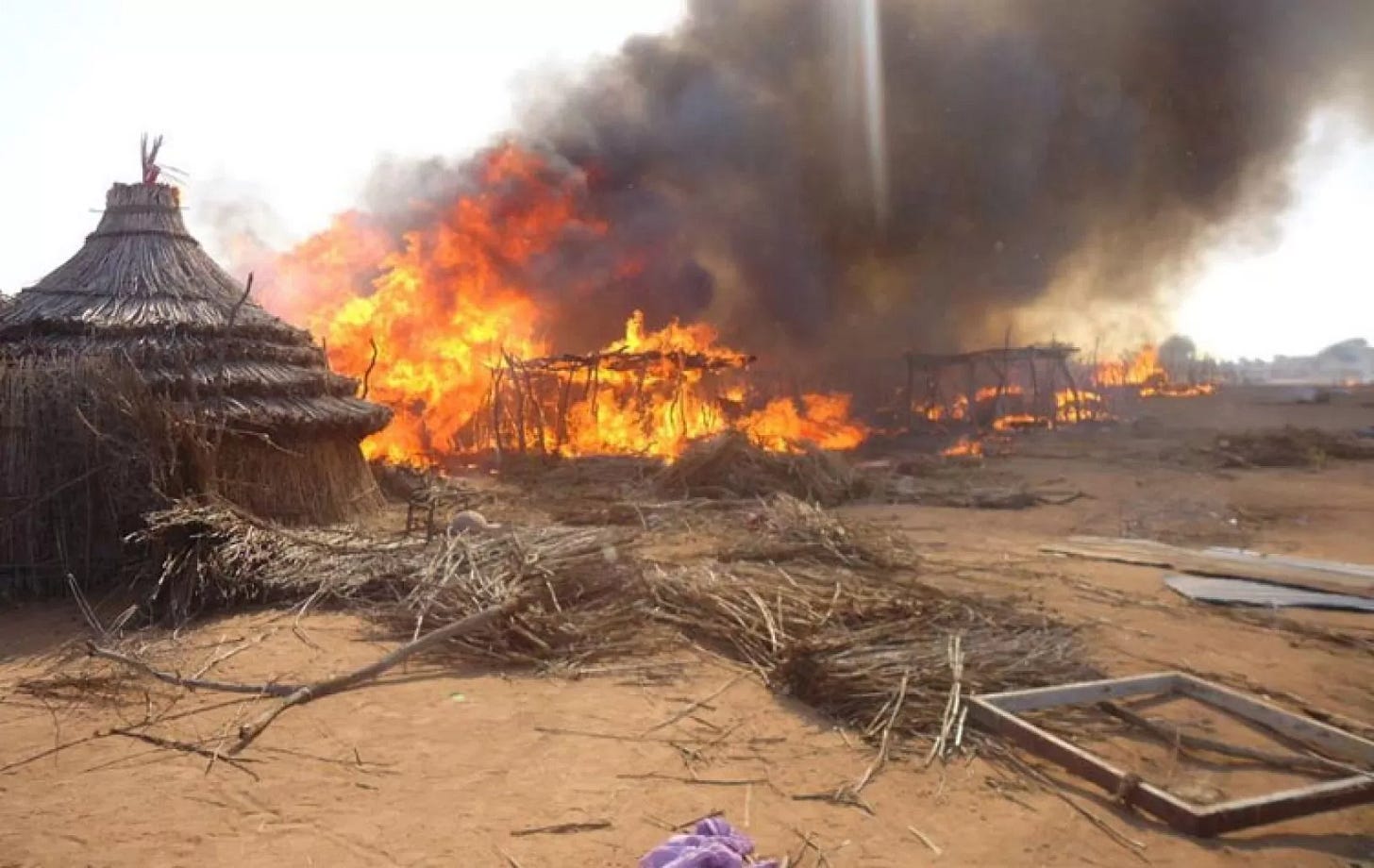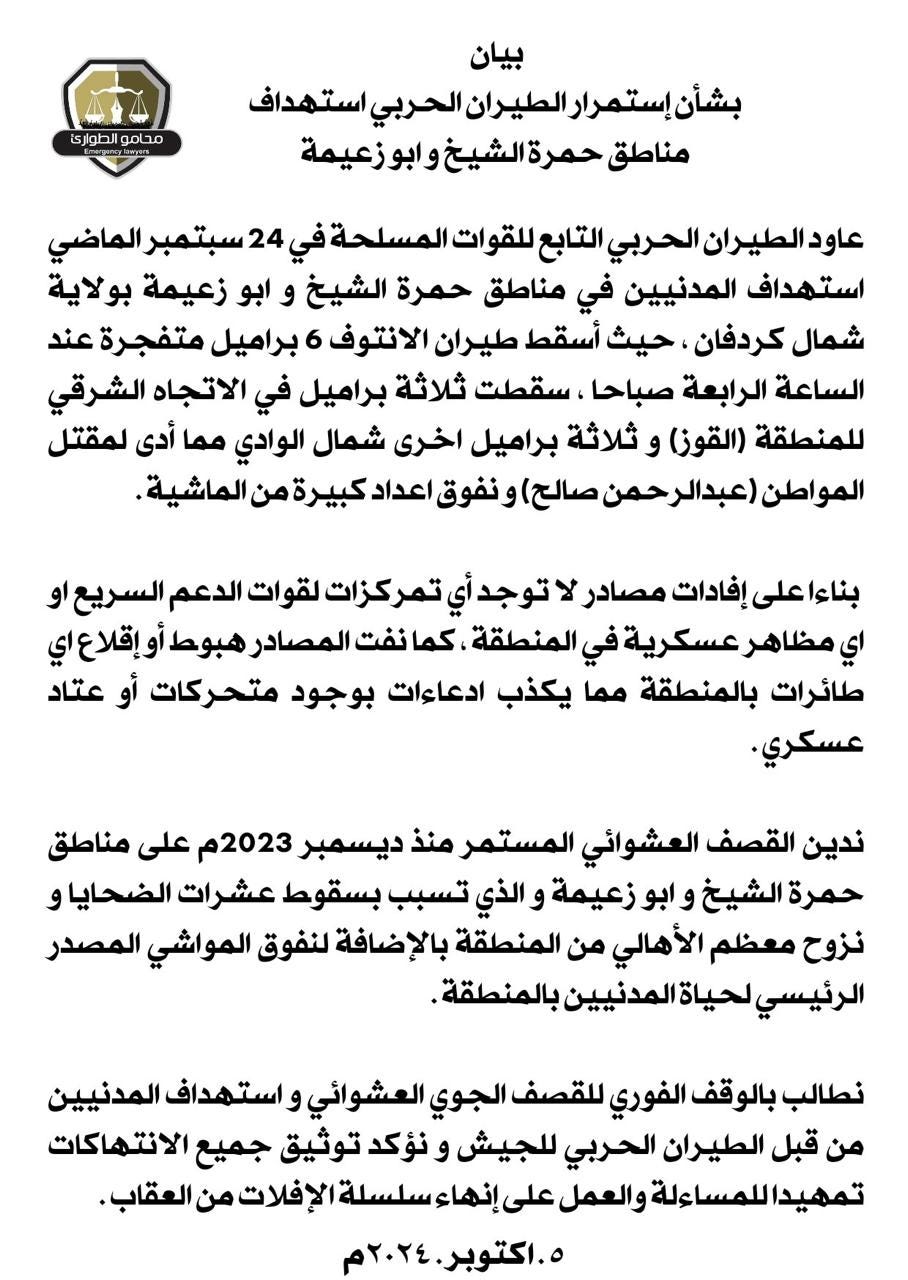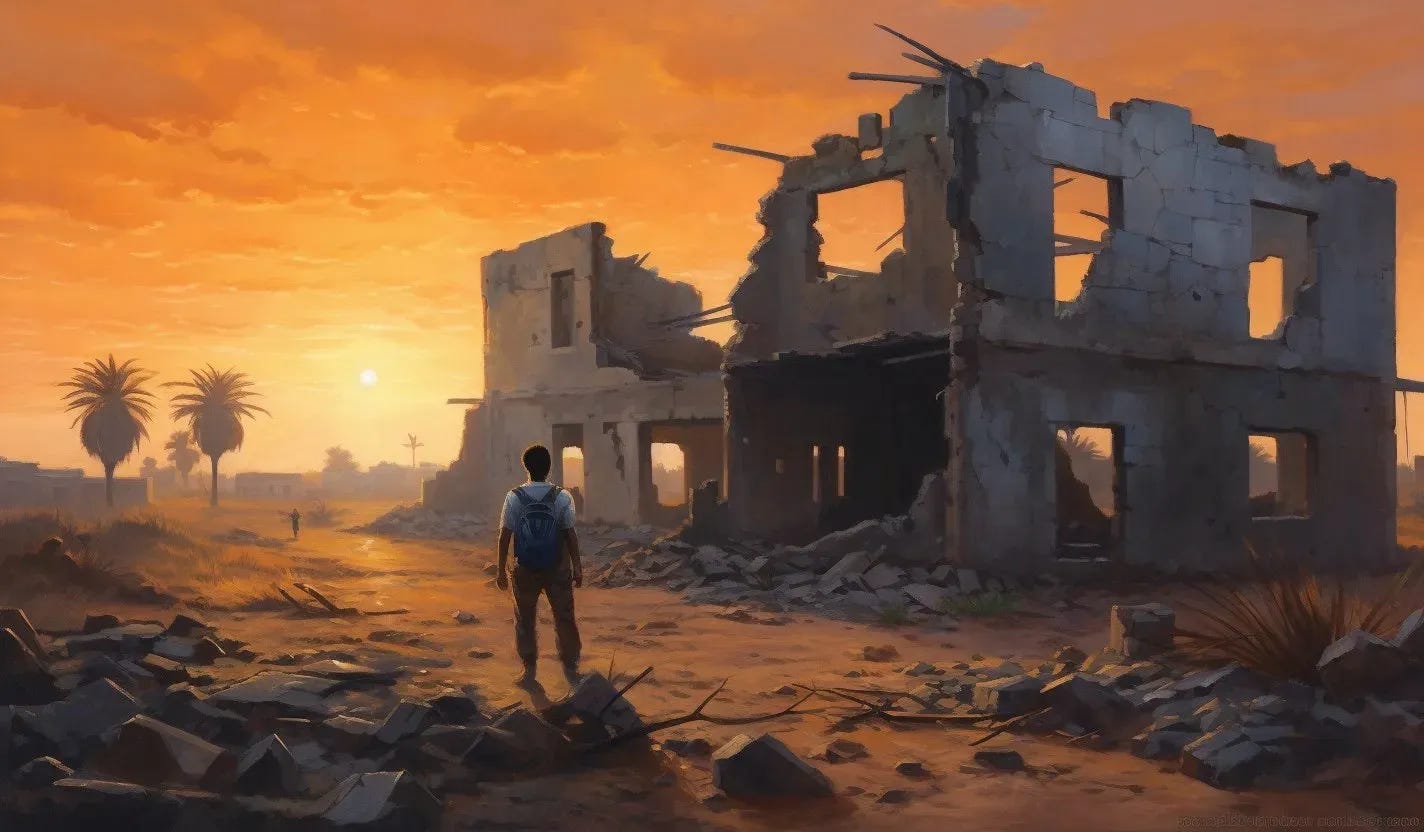Wave of SAF airstrikes in North Darfur kills dozens of civilians
Opposition groups condemn targeting of civilian markets
The Sudanese Armed Forces (SAF) have ramped up airstrikes against areas controlled by the paramilitary Rapid Support Forces (RSF) in North Darfur and the Khartoum region, resulting in the deaths of dozens of civilians and provoking widespread condemnation from civilian groups. This surge in air assaults coincides with intensifying clashes between the SAF and RSF nationwide, occurring just after the military initiated an offensive to reclaim territory held by the RSF in Khartoum.
In North Darfur, SAF warplanes struck Koma and Melit localities, both north of the regional capital El Fasher, where clashes between the SAF, supported by the Joint Armed Struggle Movement Forces (JSAMF) of former Darfur rebel movements, and the RSF have intensified. At least 45 civilians were killed, and over 200 wounded in a Friday morning airstrike on Koma village.
According to eyewitnesses, the attack, which targeted a marketplace (video below), took place around 8:00 a.m. Local sources reported that no RSF forces were present in the market during the bombing, highlighting that the market was a civilian zone.
“I am speaking to you from Koma. I arrived from Melit on Thursday, and the place where the attack took place is just a market. Yes, people who belong to the RSF go to the market to shop, but it is not a military position for the RSF, and therefore there was no justification for the bombing of the market, which has killed many people,” said a local source.
The airstrike initially claimed 40 lives, with five more victims succumbing to their injuries later. Koma, situated 54 kilometers southeast of RSF-held Melit and 80 kilometers northeast of El Fasher, has been caught in the crossfire of relentless SAF air assaults on the RSF. During a funeral for the victims, a local tribal leader condemned the strike, accusing the SAF of intentionally targeting civilians.
“This is a clear targeting of the people. There cannot be a patriot or a president of a country who hits the people and says he is fighting for the homeland. This is not a homeland, nor is it a patriotic president who does such an action,” said the visibly angry tribal leader.
Another tribal leader speaking in the video shared from the funeral, said Koma had been struck more than 30 times since the conflict began, calling for international intervention to halt the violence:
“These planes, these destructive missiles, left around 45 bodies, not to mention the large number of wounded which exceeds 200 people, where hospitals are absent, medicines are absent, all life-saving medicines are absent, and even first aid is absent. We plead and address humanitarian organizations and human rights communities, the international community, the whole world, and everyone who has mercy in their heart to stop this random bombing that kills large numbers, none of whom are wearing military uniforms. In the middle of these markets, on the market day, we ask and address communities at the local, regional, and international levels to stop this war,” he said.
A second airstrike on Saturday caused further casualties, killing six more civilians at the local market. Sources said the strike occurred during peak hours, exacerbating the tragedy as the market was packed with vendors and shoppers. Eyewitnesses reported scenes of chaos, with explosions sending people fleeing, while rescue efforts were hindered by the widespread destruction.
Similarly, in Melit locality, the SAF Air Force bombed the town market on Friday afternoon, resulting in the deaths of at least 23 people. Local sources reported that the area had been bombed three times during the week, with the latest airstrike occurring on Friday morning. Victims were buried in a mass grave.
“The airplane bombed Melit three times this week because they believe there are RSF convoys going to El Fasher from here, but that's not the case. We don't know if there are military movements outside the city, but inside, it’s all civilians. Most of the RSF forces moved to El Fasher weeks ago. But anyway, they bombed the town on Wednesday, Thursday, and again on Friday, and the total number of people who have died is 23 as I speak to you,” a resident told Sudan War Monitor.
In addition to killing and maiming many citizens directly, the airstrikes are worsening the region’s deadly famine by destroying commercial sites and driving away traders. Darfur 24 reported recently that dozens of wholesalers have left Melit market.
Melit was also the site of a gruesome airstrike in April that killed hundreds of livestock, primarily camels, and allegedly poisoned local water sources.
In another airstrike, at least eight civilians were killed in Khartoum’s Wad Abu Saleh suburb, according to local sources and videos shared online. While pro-SAF accounts claimed the strike was aimed at an RSF convoy, even pro-SAF activists, such as Yasir Mustafa, later admitted the airstrike had targeted civilians.
“I apologize for the word 'precisely' because the strike was not that. The aircraft struck Wad Abu Saleh randomly, targeting the market and the vicinity of the mosque, resulting in the death of 6 citizens in addition to a number of injuries. Mercy and forgiveness for the deceased, and a speedy recovery for the injured,” Mustafa wrote on X, formerly Twitter.
Anti-war civil forces react
Civilian forces opposed to the war issued statements condemning the airstrikes and calling for an immediate end to the conflict. The National Umma Party (NUP) and the Sudanese Congress Party (SCP), two prominent political groups that are founding members of the Coordination of Civil Democratic Forces—an anti-war civilian coalition known as Taqaddum—expressed their outrage over the deadly attacks, urging the SAF to halt military operations in densely populated civilian areas.
In its statement, the NUP condemned the SAF’s continued use of military aircraft to strike civilian targets, warning that the escalating violence is inflicting devastating harm on the Sudanese people. The party stressed the urgent need for both warring sides to recognize the human toll of their actions, particularly as civilians continue to bear the brunt of the conflict.
“The National Umma Party strongly condemns this repeated bombing by the armed forces' aircraft and the continued targeting of innocent civilians, despite numerous appeals and demands from both sides of the conflict to protect civilians and spare them from the dangers of air and artillery strikes. However, these violations continue with increasing intensity. The repetition of these heinous massacres confirms that this war has become directly aimed at innocent civilians, lacking any moral or legitimate justification, and must be stopped urgently...”
The statement called for an immediate cessation of hostilities, emphasizing that continued air and artillery strikes on civilian areas are causing senseless loss of life.
“Both parties must realize that the continuation of this war has become a serious threat to the nation's safety, territorial integrity, and the security of its citizens. The time has come to stop it immediately to preserve and protect civilian lives and the nation's resources,” the NUP statement concluded.
The SCP echoed the NUP’s condemnation, describing the airstrikes as heinous violations of international humanitarian law. It denounced the SAF’s actions as part of a broader pattern of war crimes that have been committed since the war erupted in April. The party stressed that the systematic targeting of civilian populations reflects a blatant disregard for human rights and international law.
“We in the Sudanese Congress Party condemn this heinous crime, which is part of a broader series of war crimes perpetrated by the Sudanese Armed Forces' air force, marked by the systematic targeting of civilian areas throughout the cursed war that began on April 15. These atrocities, no doubt, will not escape accountability,” it said.
Additionally, the group highlighted the actions of militias linked to Sudan's former regime, accusing them of committing atrocities in different parts of the country, including the execution of civilians in Bahri, an area of the capital where the SAF has recently advanced. The opposition party referred to allegations that Baraa Bin Malik, a pro-Islamist militia fighting alongside the SAF, executed dozens of civilians following last week's capture of the Halfaya neighborhood in Bahri.
However, supporters of the militia have denied this, saying video evidence supposedly supporting this claim actually shows dead combatants, not civilians.
Meanwhile, the independent legal group “Emergency Lawyers” condemned a SAF airstrike on Hamrat Al-Sheikh, citing reports that more than 30 civilians were killed and over 100 wounded. Located 290 kilometers northwest of the state capital, El Obeid, the town is controlled by the RSF but far from any frontline.
Emergency Lawyers called this a “brutal crime” against unarmed civilians. The area had previously been targeted on September 24 when the SAF dropped approximately six barrel bombs, killing a civilian named Abdul Rahman Saleh and leading to significant livestock losses, according to Emergency Lawyers. They condemned the bombing and called for an immediate halt to the targeting of civilians.
“We condemn the indiscriminate bombing that has continued since December 2023 in the Hamrat Al-Sheikh and Abu Zaima areas, which has resulted in dozens of casualties and the displacement of most residents, along with the deaths of livestock, the main source of livelihood for civilians in the area,” the lawyers stated. “We demand an immediate end to the indiscriminate aerial bombardment and targeting of civilians by the army's warplanes, and we confirm that we are documenting all violations in preparation for accountability and to end the cycle of impunity,” they added.
Support our journalism
Thank you for reading Sudan War Monitor—an independent collective of journalists and open source researchers, not affiliated with either party in the ongoing civil war. We publish maps, news, analysis, and videos about the conflict. We do this work because we believe that journalism is one accountability mechanism that ultimately can contribute toward peace and justice in Sudan—however distant that hope may be. Our work is intended to be a resource for humanitarians, civil society, ordinary Sudanese, diplomats, and news media. Subscribe or share to support our work.





